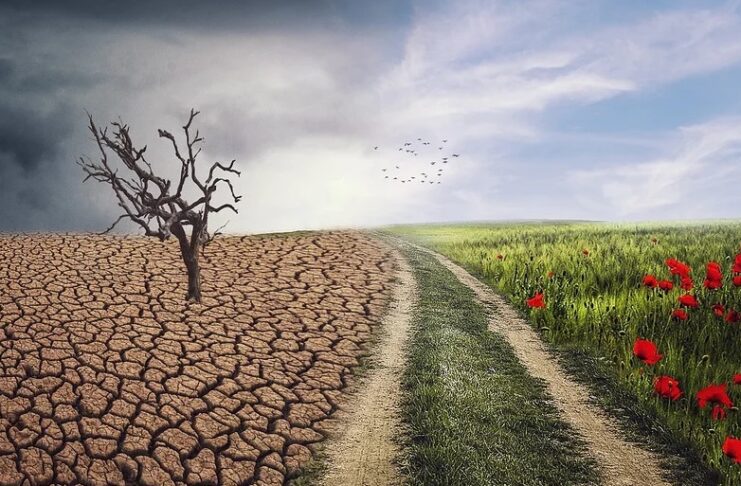Leggi l’articolo tradotto in italiano: La tua vita per una bistecca
Recent events in Europe have given us to experience the raw reality of the natural climatic disasters that have been felt throughout the world in recent years. Planet Earth with its 3.8 billion years of existence is an “intelligent” ecosystem that has always found a way to find its survival. Aware of the fragility and untimely temperament of natural phenomena resulting from climate change, they do not choose their action, not even by culture, geography, technological evolution or even standard of living. The great floods of Germany, France, Belgium and Luxembourg hit the center of Europe in a surgical way, leaving thousands of people homeless and inflicting unprecedented human and material damage on the territory, surprising those who lived there and found it impossible in the face of their level of life experience such a thing.
Aldo di Russo assumes that we are not experiencing a crisis, but a transition. Indeed, the alignment of digital transition, climate change, city overcrowding and deforestation are obviously interlinked. We are facing a struggle to measure the strength between nature and man. This dramatically accelerates the loss of biodiversity, causing global warming through deforestation with a focus on increasingly elaborate technology capable of managing consumption and substituting nature or the “divine” for the action of man. We already know from experiences in Saudi Arabia that rain can be caused in times of extreme drought, through electrical discharges into the atmosphere at the cost of millions of dollars for the performer.
Man has always been able to create. Going back to the research periods of the post-medieval era and the beginning of the industrial revolution, man has always been observing and imitating nature, looking for solutions to approach the unique and super-intelligent characteristics that every living being uses to survive. The ironic thing about this transition is that we are extinguishing species of living beings that may hold the key to our survival as a human species. Substituting ourselves to the global ecosystem has been a path that has occupied the last centuries of technological and scientific research capable of extending the average period of life and improving the comfort of a small percentage of the human population.
Listing the privilege of a small portion of humanity that has access to comfort during its lifetime may seem like an inappropriate comment, however the question should perhaps be: “How long will it take us to manage to coexist in balance with our ecosystem? ”
Our hypocrisy in the struggle for the climate balance whose limit of the 2030 carbon reversion estimated by the Paris Agreement has been essentially worked out in a top-down logic, it has been a process made up at the last minute. When 70% of food production is for feeding domestic animals, we are faced with a gastronomic, ecological and economic dilemma, in which we put our survival as a planet at risk, in exchange for a diet based on meat consumption or the parable of “Life for a steak!!!”.
The threats of current behavior are manifold. I leave it here 8:
- Threat 1: Consider sustainability as a narrative, which is nothing more than a marketing ploy to increase sales of certain products.
- Threat 2: The energy transition measures and their speed of implementation are not enough to reverse the calamity of climate change.
- Threat 3: The loss of biodiversity is so accelerated and the change in consumption habits is so great that we run the risk of eliminating the key to the planet’s survival.
- Threat 4: The necessary measures are not being taken to change food consumption habits in order to protect the terrestrial ecosystem.
- Threat 5: The inefficiency and slowness of government initiatives are not consequential, starting with the great world organizations and ending with citizens who do not demand effective and efficient measures. The responsibility is everyone’s.
- Threat 6: Every 7 years there is a cycle of forest fires in Portugal, the prevention of which is never anticipated and land management policies are far from being adequate to the threats.
- Threat 7: The unbalanced increase between the big cities and the rural interior creates problems of territorial management that compromise the quality of life of future generations.
- Threat 8: Soil erosion resulting from super intensive agricultural monocultures does not allow for the balance of biodiversity in ecosystems.
In order to be able to position ourselves in a constructive and collaborative perspective regarding the Green Deal, reflection is already mandatory in the political programs of the municipal elections that will take place on 26 September. This need to think Glocal is fundamental to include policies for environmental protection, spatial planning and sustainability of human presence in the face of the planet we all inhabit. The transition is urgent, non-partisan and does not exclude anyone!!!






